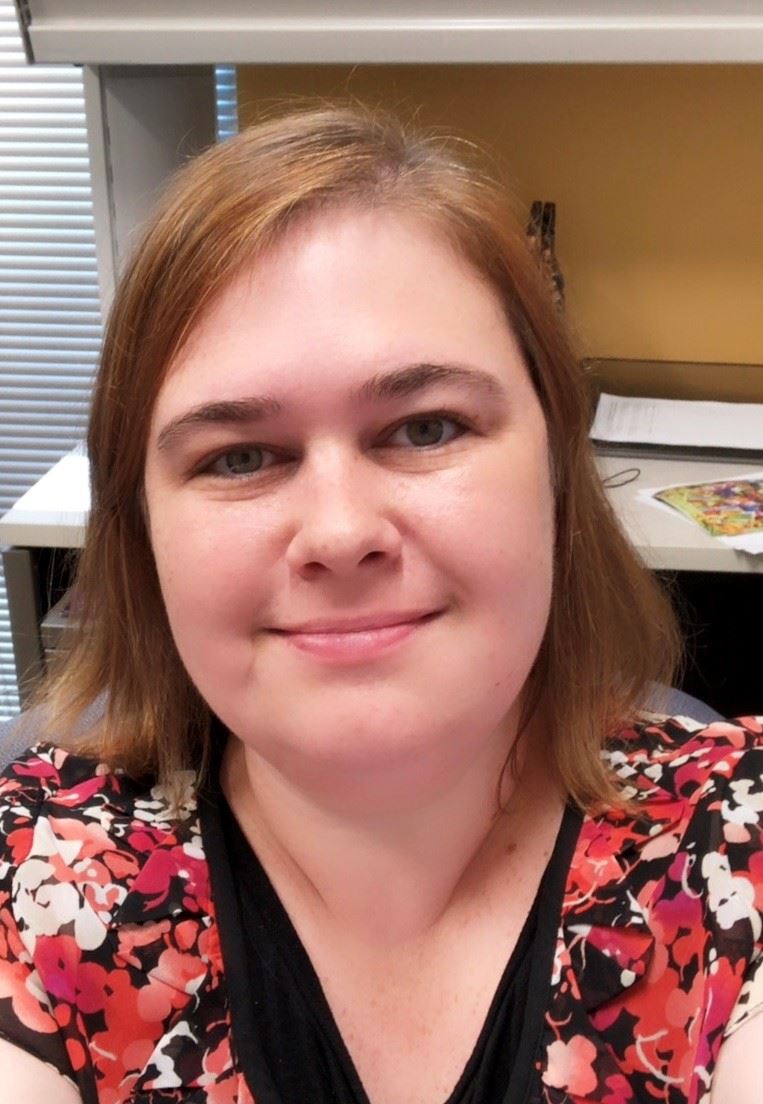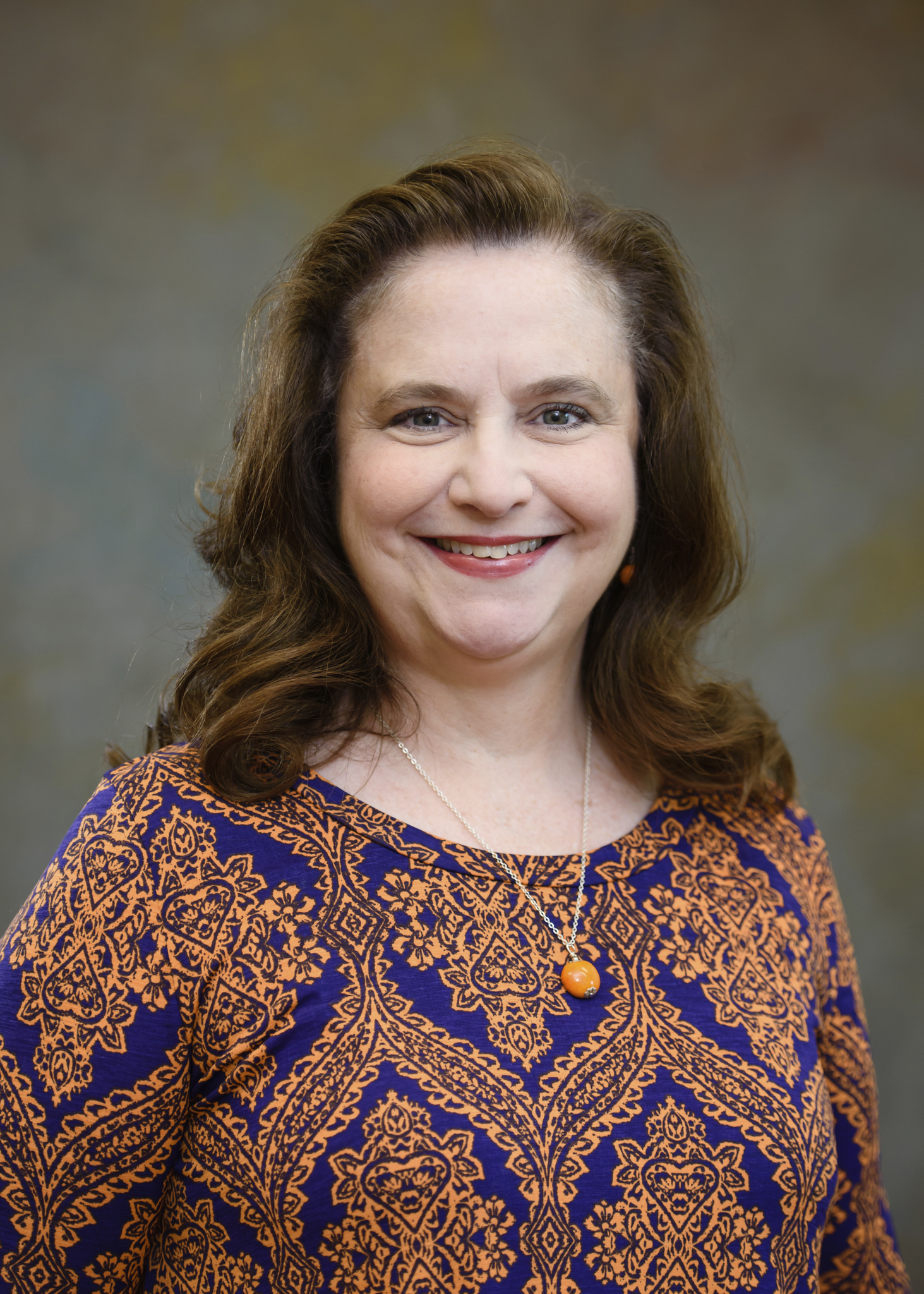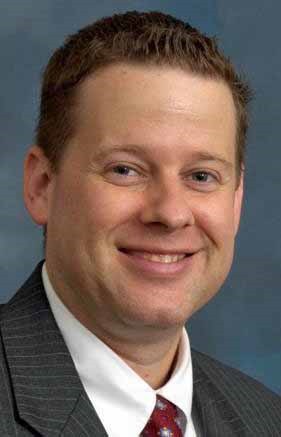ASSOCIATION INVOLVEMENT

Q. How did you first learn about SCASFAA? Did a coworker or supervisor tell you about the association, or did you learn about it on your own?
A. I actually first learned about SCASFAA through a Google Search. I moved into the Financial Aid Office at Newberry College in August 2004. A few months later, the Director changed jobs, so I knew I needed some immediate training. I did a quick Google search to find out what was available and SCASFAA popped up.
Q. Who or what encouraged you to first become a member of SCASFAA? Do you remember what your first association activity was?
A. My first activity was the Spring Conference in Myrtle Beach - I'll never forget Kim Jenerette, Jeff Dennis, and Keith Reeves ('the nun") all decked out for "Miss SCASFAA." My first connection within SCASFAA was with Tabatha McAlister, who was my group's leader in the scavenger hunt.
Q. Tell us about your volunteer roles in the association; which committees have you served on, and what positions have you held on the Executive Board? What made you decide to become a more involved member?
A. My first SCASFAA volunteer role was to serve on the Newsletter committee with Neal Kiker. I enjoyed proof-reading the draft and assisting with collecting SCASFAA news. When he was changing roles at work, he asked if I would take over for the remainder of the year, thus began my first committee chair appointment. In addition to the newsletter committee, I have also served on the conference committee, chaired the electronic services committee, and served as Member at Large, Treasurer-Elect, Treasurer, and Vice President.
Q. How has your involvement as an active SCASFAA member and volunteer benefitted your career? Would you say your service as a leader within the association has helped promote your success in the financial aid profession?
A. Absolutely, my involvement in SCASFAA has helped promote my success in the financial aid profession. In addition to the training that is offered by SCASFAA, the largest benefit of the membership is the connections and peer networking that is available. The ability to pick up the phone or send an email to another member for instruction, advice, or just to vent together is what makes this organization so important.
Q. As the Director of Student Financial Aid at Piedmont Technical College, how have you incorporated your involvement with SCASFAA or lessons learned from SCASFAA into your managerial routine? Besides being a member and attending the conference, how does your involvement in SCASFAA benefit you as a leader in your office?
A. I feel as if the mentoring I have received from the "seasoned" SCASFAA membership has assisted me with becoming a better manager. Being on the Board with those who have been in the profession for a number of years has given me direct contact with the best Directors in the state. Their "best practices" and "lessons learned" have guided me to review the structure, training, and organization of my office at two colleges.
Q. In your role as Director, how do you make sure staff understand the benefits of SCASFAA membership, training, and professional development opportunities? Do you encourage (or require) your staff to become members of the association? How do you encourage your staff to become more involved through volunteering?
A. Our school pays the membership fee for everyone in the financial aid office to become a SCASFAA member and we rotate counselors who get to attend the conference. Additionally, it is a requirement on each of their yearly reviews to participate in at least two professional development activities. I also support and encourage each of them to volunteer on a SCASFAA committee.
Q. Some managers may not understand the value of association involvement (whether it is with SCASFAA or other associations). Do you think this keeps their employees from volunteering and/or becoming members of SCASFAA? If so, how would you encourage those in a leadership position to take a second look at the value of association membership and involvement?
A. Obviously the information we need to do our jobs is available online; however, interpreting that information is not always easy - this is where the association comes in. Whether it be a webinar with Dave Bartnicki, the sessions at the conference, the ListServ, or just those connections that are made over time through volunteering and participating; help is available. I can't imagine trying to do my job without the assistance and support of my peers in SCASFAA.
Q. What suggestions do you have for our newer members, or those who have never volunteered, for making SCASFAA more personally and professionally valuable to them?
A. Don't be scared to volunteer and offer suggestions! Have fun at the conferences. Jump in on our silly games - trivia, SCASFAA Olympics, scavenger hunts - and make some new friends. It is much easier to pick up the phone and call a friend to ask for help than to call a stranger.
PREVIOUS ASSOCIATION INVOLVEMENT INTERVIEWS:

Q. How did you first learn about SCASFAA? Did a coworker or supervisor tell you about the association, or did you learn about it on your own?
A. I was encouraged (that is, dragged) to participate by my supervisor Miriam Wilson. Also, our director Marvin Carmichael served as president/chair of SCASFAA, SASFAA, and NASFAA, so volunteering for the associations has always been a priority for the staff at Clemson.
Q. Who or what encouraged you to first become a member of SCASFAA? Do you remember what your first association activity was?
A. My first activity was the spring conference – at Springmaid, of course. Most of my early memories involve Springmaid.
Q. Tell us about your volunteer roles in the association; which committees have you served on, and what positions have you held on the Executive Board? What made you decide to become a more involved member?
A. One of my first volunteer roles was to serve on the conference committee with Neil Lyerly. I was in charge of decorating the tables for the banquet and printing the program. The very next year, unbelievably, Fred Hardin asked me to be the conference chair. Over the years, I have served as conference chair (4 times), sponsorship chair (3 years), site selection chair, counselor relations chair, and advisory to CHE chair. I have held the offices of Secretary, Vice President, President-Elect, President, and Past-President. I have instructed at the New Aid Officers Workshop numerous times for SCASFAA and SASFAA. I wanted to be involved because it was fun and inspiring to be a part of a vibrant group of dedicated people.
Q. How has your involvement as an active SCASFAA member and volunteer benefitted your career? Would you say your service as a leader within the association has helped promote your success in the financial aid profession?
A. My involvement in SCASFAA has definitely benefitted my career because of the training and mentoring I received. In addition to the obvious benefits of professional development, I would say the emotional support has been even more important. Spending time with people who understand what drives me, what frustrates me, what sustains me – that is the biggest benefit of SCASFAA.
Q. As the Director of Student Financial Aid at Clemson University, how have you incorporated your involvement with SCASFAA or lessons learned from SCASFAA into your managerial routine? Besides being a member and attending the conference, how does your involvement in SCASFAA benefit you as a leader in your office?
A. Learning from my friends in SCASFAA has made me a better worker and a better manager. It is very valuable to see other leadership styles, organizational structures, and policies and procedures. The financial aid industry is somewhat unique in its lack of competition and its willingness to share knowledge, and SCASFAA exemplifies that spirit.
Q. In your role as Director, how do you make sure staff understand the benefits of SCASFAA membership, training, and professional development opportunities? Do you encourage (or require) your staff to become members of the association? How do you encourage your staff to become more involved through volunteering?
A. We encourage most staff members to participate in at least one professional development activity each year. With limited resources and the necessity of keeping the office open, that means taking turns to attend the annual SCASFAA conference. Everyone is encouraged to join and volunteer, but sometimes we have to “wait our turn” to run for office or take on a large role. When someone has a large roll such as President or conference chair, everyone pitches in to help.
Q. Some managers may not understand the value of association involvement (whether it is with SCASFAA or other associations). Do you think this keeps their employees from volunteering and/or becoming members of SCASFAA? If so, how would you encourage those in a leadership position to take a second look at the value of association membership and involvement?
A. Becoming a leader in SCASFAA does take time and commitment, and I am grateful that Clemson has been supportive of my involvement. I cannot imagine doing my job successfully without association involvement. Certainly in this on-line world, the information is available, but nothing can replace in-person training and networking.
Q. What suggestions do you have for our newer members, or those who have never volunteered, for making SCASFAA more personally and professionally valuable to them?
A. I suggest finding a committee that interests you and volunteering to be a committee member. That may lead to a role on the Executive Board, or you may be happy to remain working behind the scenes. If you volunteer for a committee, show up and follow through. For me, that meant picking and transporting hundreds of camellias from the upstate to Myrtle Beach to decorate for the banquet. I will never forget the pride I felt at how beautiful the room looked. That’s when their SCASFAA became my SCASFAA.
Q. Anything else you would like to share?
A. The friendships I have made in SCASFAA are some of the most meaningful relationships of my life. I am deeply grateful for the support of my SCASFAA family when I have faced personal and professional challenges. Some of my fondest memories were made at SCASFAA conferences, where we work hard AND play hard! I encourage everyone to consider getting involved – the more you give, the more you will receive.

Q. How did you first learn about SCASFAA? Did a coworker or supervisor tell you about the association, or did you learn about it on your own?
A. When I started working at Voorhees College over 19 years ago, being part of SCASFAA was automatic. My supervisor encouraged us to volunteer for committees.
Q. Who or what encouraged you to first become a member of SCASFAA? Do you remember what your first association activity was?
A. My supervisor, Ms. Carol White, encouraged me greatly. I can't remember my very first activity, but the one that stands out the most is when we built the boats during a spring conference in Myrtle Beach.
Q. Tell us about your volunteer roles in the association; which committees have you served on, and what positions have you held on the Executive Board? What made you decide to become a more involved member?
A. My biggest area of responsibility with SCASFAA has been serving as conference chair. I always like to ask if my help is needed in other areas, too.
Q. How has your involvement as an active SCASFAA member and volunteer benefited your career? Would you say your service as a leader within the association has helped promote your success in the financial aid profession?
A. Getting involved with SCASFAA was my foundation. This lead me to volunteer with SASFAA, NASFAA, and FSA. I have volunteered with those associations as a session moderator and presenter. I have also assisted with registration at some of these conferences. This has given me lifelong friends and a great network of colleagues to go to for questions and assistance. It has also granted me the opportunity to get involved with other organizations I was recently re-elected as Treasurer for a third 2-year term for the SC Association of Veterans Administrators. I've been serving on the College Board's HBCU Advisory committee for over 5 years and am currently serving as one of the leads for the financial aid track for their annual conference.
Q. As the Director of Student Financial Aid and Scholarships at Claflin University, how have you incorporated your involvement with SCASFAA or lessons learned from SCASFAA into your managerial routine? Besides being a member and attending the conference, how does your involvement in SCASFAA benefit you as a leader in your office?
A. I'm able to look back on situations and experiences for guidance, and I can also call a colleague at another institution for help at any time. My staff sees that I have an excellent network of colleagues that are supportive and caring.
Q. In your role as Director, how do you make sure staff understands the benefits of SCASFAA membership, training, and professional development opportunities? Do you encourage (or require) your staff to become members of the association? How do you encourage your staff to become more involved through volunteering?
A. I pay the fees every year for my staff to be members, and I always ensure that at least two staff members attend the SCASFAA conference. I also try to attend if it doesn't conflict with other workshops or conferences so that they recognize the importance of attendance and ongoing professional development.
Q. Some managers may not understand the value of association involvement (whether it is with SCASFAA or other associations). Do you think this keeps their employees from volunteering and/or becoming members of SCASFAA? If so, how would you encourage those in a leadership position to take a second look at the value of association membership and involvement?
A. I do think this may very well keep employees from becoming association members and volunteering. I was glad that when I came to Claflin, my supervisor was not only understanding but also encouraged participation in organizations, workshops, and conferences. To this day, if something comes across his desk, he will communicate with me to let me know it's a good opportunity to present and participate in. I appreciate that, and I hope I have done the same for my staff.
Q. What suggestions do you have for our newer members, or those who have never volunteered, for making SCASFAA more personally and professionally valuable to them?
A. I think that if they are skeptical, they should at least attend the conference to get a feel for what it's about and be open to getting to know more people besides the ones they work with on a daily basis. Building relationships is helpful and a key to being successful.
Q. Anything else you would like to share?
A. I think that supervisors should encourage staff to really build a good network of colleagues so that they have seasoned professional to call upon for assistance. SCASFAA is the perfect way to do that.

Q. How did you first learn about SCASFAA? Did a coworker or supervisor tell you about the association, or did you learn about it on your own?
A. I first learned of SCASFAA from my supervisor, Bob Godfrey, and Director, Dr. Ed Miller.
Q. Who or what encouraged you to first become a member of SCASFAA? Do you remember what your first association activity was?
A. Bob Godfrey and Dr. Ed Miller encouraged me to get involved in SCASFAA when I first joined the USC-Columbia Office of Student Financial Aid and Scholarships in 2001. My first association activity was the Fall 2001 SCASFAA Conference. It was an incredible experience, and one that inspired me to learn more about the aid profession, which I had just joined.
Q. Tell us about your volunteer roles in the association; which committees have you served on, and what positions have you held on the Executive Board? What made you decide to become a more involved member?
A. I have served on numerous SCASFAA committees, including the Electronic Services Committee, Legislative Relations Committee, Budget Committee, and Peer Mentor network. I was fortunate to serve as Chair of the Electronic Services Committee and Chair of the Legislative Relations Committee.
Q. How has your involvement as an active SCASFAA member and volunteer benefited your career? Would you say your service as a leader within the association has helped promote your success in the financial aid profession?
A. Active involvement in SCASFAA was critical for me to gain a “big picture” perspective on the aid profession, aid administration in South Carolina, and the many opportunities we enjoy and challenges we face as aid administrators. Serving as a leader in the association contributed greatly to my professional growth and development, as I learned from many leaders in the aid profession and made many friends along the way. A network of fellow aid administrators is invaluable to success in aid administration and leadership.
Q. As the Director of Student Financial Aid and Scholarships at the state’s largest higher education institution, how have you incorporated your involvement with SCASFAA or lessons learned from SCASFAA into your managerial routine? Besides being a member and attending the conference, how does your involvement in SCASFAA benefit you as a leader in your office?
A. I learned much from the present and past leaders of SCASFAA. I incorporate many of those lessons in my everyday management and leadership efforts. Involvement in SCASFAA continues to provide me with many different perspectives of aid administration, which in turn helps me share such multi-faceted “takes” on current aid-related issues. It’s important that leaders in aid administration understand and effectively share the impact of aid-related issues on their home institution, as well as the impact on other institutions, lenders, government agencies, and other entities involved in aid administration.
Q. In your role as Director, how do you make sure staff understands the benefits of SCASFAA membership, training, and professional development opportunities? Do you encourage (or require) your staff to become members of the association? How do you encourage your staff to become more involved through volunteering?
A. SCASFAA membership is afforded to all professional staff members employed by the USC-Columbia Office of Student Financial Aid and Scholarships. In addition, active participation in SCASFAA activities and opportunities is highly encouraged, including conference attendance, presentations, and involvement in SCASFAA professional development and leadership opportunities. Staff are encouraged to volunteer for committees when completing their SCASFAA membership or renewal application.
Q. Some managers may not understand the value of association involvement (whether it is with SCASFAA or other associations). Do you think this keeps their employees from volunteering and/or becoming members of SCASFAA? If so, how would you encourage those in a leadership position to take a second look at the value of association membership and involvement?
A. Employees look to leaders for professional priorities. If leadership does not promote value in an association, employees may not see value in that association. I would encourage leaders to consider the many benefits of association membership and participation. In most aid offices, employees are the most valuable part of the equation for success. Involvement in professional associations can help those employees grow and develop professionally. They may also find additional reward in their work, as they continue to grow in the profession, but do so alongside others who share their opportunities and challenges. Financial aid administration is challenging and ever-changing. A network of fellow aid professionals is valuable in meeting these consistent demands.
Q. What suggestions do you have for our newer members, or those who have never volunteered, for making SCASFAA more personally and professionally valuable to them?
A. Each member should help make SCASFAA work for them, by participating in those opportunities that appeal to them as a professional and taking a few chances to get out of their comfort zone and try new things. After all, the aid community is a tight-knit group who are always willing to lend support and encouragement!
A. Throughout my career in aid, SCASFAA has been a consistent source of support, encouragement, and growth. With each passing year, I continue to learn, grow and develop. I greatly value the many lessons I have learned as a member of SCASFAA, and the many wonderful people I have met as part of the SCASFAA family.
For more information about how you can become involved with SCASFAA, check out our Volunteer Opportunities page.
